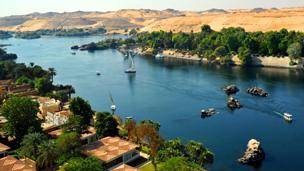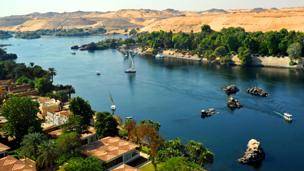Under the title "Escalating Tensions: Ethiopia Builds Another Dam on a River Feeding the Nile," the Al Arabiya website reported on a step that may increase tensions between Ethiopia, Egypt, and Sudan. Addis Ababa has announced the commencement of a new dam project on the Didessa River, which feeds into the Blue Nile. The initial steps for constructing the "Rage Reservoir" dam were inaugurated by the regional governor of Oromia, Shimeles Abdissa, and Minister of Water, Irrigation, and Energy, Seleshi Bekele, according to the official news agency on Tuesday.
During the event, the Ethiopian minister indicated that 50% of land in Ethiopia is suitable for agriculture through irrigation projects, yet only 20% is utilized. He explained that the dam, expected to be completed in three years, will help irrigate and develop over 14,500 hectares of agricultural land benefiting approximately 58,000 families in the region.
However, this project may exacerbate existing tensions between Ethiopia and both Egypt and Sudan concerning the Grand Ethiopian Renaissance Dam (GERD) and the utilization of shared water resources among the three countries, especially since the mentioned river (Didessa) feeds into the Blue Nile.
Since 2011, Egypt, Sudan, and Ethiopia have been negotiating to reach an agreement on filling and operating the GERD that Addis Ababa is building to become the largest power-generating source of hydroelectricity in Africa, with an expected capacity of 6,500 megawatts.
Despite Khartoum and Cairo urging Ethiopian authorities to postpone plans for filling the dam's reservoir until a comprehensive agreement is reached, Addis Ababa announced on July 21, 2020, that it had completed the first phase of filling the reservoir, which has a capacity of 4.9 billion cubic meters, allowing the testing of the first two pumps at the dam. It also emphasized its intention to implement the second phase of filling the dam's lake next July, despite all objections from Egypt and Sudan.
For its part, Egypt, which relies on the Nile River for 97% of its water sources, considers this dam an existential threat. Meanwhile, Sudan fears that the Ethiopian dam could impact the operation of its own dams.




